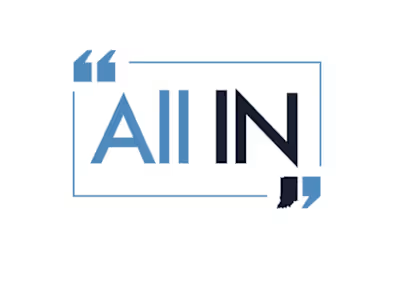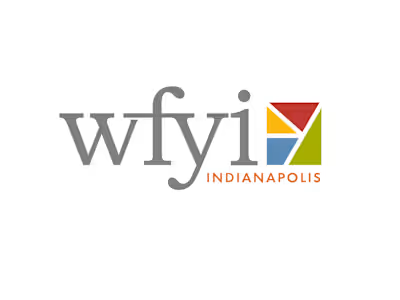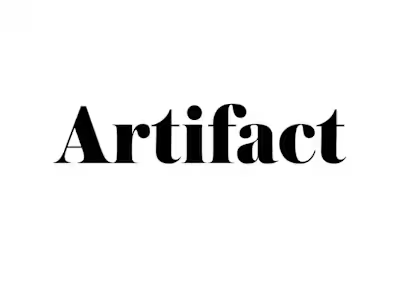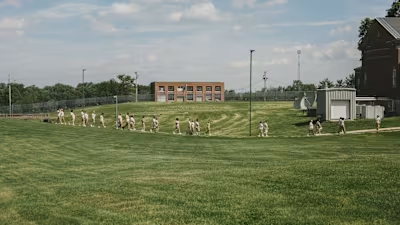How are Special Ed Disputes Handled? And Does it Need to Change?
FEBRUARY 15, 2022
Today we learn about a bill that would change how disputes around special education are handled in Indiana, specifically parts of the process related to NDA’s and which party has the burden of proof.
Produced by Drew Daudelin.
Guests:
Lee Gaines
Investigative Education Reporter, WFYI
Rep. Ed Clere
Indiana State Representative, District 72
Kim Dodson
Executive Director of The Arc of Indiana
Angie Balsley
President, Indiana Council of Administrators of Special Education; Executive Director, Earlywood Educational Services
PROMO
Part of a bill working its way through the Statehouse would change the way disputes are handled around special education in Indiana -- specifically parts of the process related to NDA’s and who has the burden of proof. I'm Mariam Sobh, next time on All IN we’ll find out why these changes are being proposed, and why some are against it. What role should litigation have in school disputes? And is there a power imbalance between parents and schools? Join us.
BILLBOARD
Part of a bill working its way through the Statehouse would change the way disputes are handled around special education in Indiana -- specifically parts of the process related to NDA’s and who has the burden of proof. Today on All IN we’ll find out why these changes are being proposed, and why some are against it. What role should litigation have in school disputes? And is there a power imbalance between parents and schools?
I’m Mariam Sobh. We’ll hear from WFYI education reporter Lee Gaines to get the big picture, and to hear about one parent with a personal story about how the process works right now. We’ll also hear from the author of the bill, Representative Ed Clere, then from someone who supports the bill and someone who opposes it, to find out what’s at stake.
We’d like to hear your thoughts too, leave us a voice message through our app, it’s called All IN Vox Pop. Or reach out to us on Twitter or Facebook at All IN Indiana.
A bill that could change the way special education disputes go down in Indiana… up next. But first, this news.
<SEGMENT A>
IN: This is All IN -- I’m Mariam Sobh.
Today we’re talking about a bill working its way through the Indiana Statehouse that could change the way disputes are handled involving special education.
There’s a lot going on here, so to help us break it down before we dive deeper we’re joined by Lee Gaines, investigative education reporter at WFYI.
Can you give us just a broad sense of what this part of the bill we’re talking about is? What specific elements are there?
Is there a history to these kinds of changes in Indiana? Is this something people have been pushing to change for a long time?
Let’s get into the details a bit -- what does the section about NDA’s mean? What would happen if this passes as it’s written now?
What kind of testimony have lawmakers heard about the NDA change? Are there common threads there, or a lot of different voices weighing in?
Is there a clear sense for what the two sides of this NDA issue are arguing, or is it more complicated than that?
Can you tell us about Karla, who you featured in a recent feature story about this?
Lee will set this up:
[18 sec] SOUNDBITE-A-1-Karla.mp3“ … and I said, no. No, no, that’s not right.”
You brought another clip from Karla, where she talks about the impact the NDA had on her family. Let’s listen to that now.
[28 sec] SOUNDBITE-A-2-Karla.mp3“ … because they can still control what I say about this.”
What impact does it seem like this has had on Karla?
Lee will set this up:[23 sec] SOUNDBITE-A-3-Karla.mp3“ … Yeah, they still have power.”
Do we have any sense for how many people there are like Karla, around Indiana? Is it hard to know the scope of these issues?
We’ll talk about this more with our guests later in the show, but can you briefly explain what the burden of proof part of this bill would do, and what the goal is?
What’s next for this bill?
OUT: Lee Gaines is an investigative education reporter at WFYI. You can find her work, and more from the station’s education desk, at WFYI dot ORG slash NEWS.
We’ll be back after a quick break -- we’re talking about potential changes to the way disputes are handled around special education in Indiana.
If you have questions or comments for the show, let us know on Facebook or Twitter at All IN Indiana. You can also leave us a voicemail at 866-476-3881 … again, that number is 866-476-3881.
I’m Mariam Sobh -- back in 90 seconds. This is All IN.
<SEGMENT B>
IN: This is All IN -- I’m Mariam Sobh.
Today we’re talking about potential changes to the way disputes are handled around special education in Indiana. One part of a larger bill working its way through the Statehouse would impact certain parts of the process related to NDA’s and who has the burden of proof.
In our first segment we heard from reporter Lee Gaines to get the big picture, now we’re joined by the author of that bill -- Ed Clere is the Indiana State Representative for District 72.
So House Bill 1107 has a lot going on, but we’re focusing on these two parts about special education, which we learned about in the first segment -- can you talk about where these proposed changes originated?
What is the argument against NDA’s being used in these settlements?
Do you think there’s validity to the argument that this change would cause more due process requests, which would cost lots of taxpayer money?
Do you think litigation is overused in these kinds of disputes, overall?
Can you explain what impact shifting the burden of proof to schools would have?
What’s going to be the biggest obstacle towards getting these changes passed?
To talk more about this bill and the potential changes written into it, we’re joined by Kim Dodson, executive director of The Arc of Indiana.
Why do you think it’s important for these changes to happen in Indiana, right now?
What are the biggest problems you think are being addressed here, from the perspective of a parent?
Have any other states passed bills similar to this?
Why do you think most states haven’t made changes to the burden of proof for these kinds of disputes?
Is there a clear political divide on these changes? Or has there been bipartisan agreement in some places?
How much of a political challenge is it going to be to get this passed in Indiana?
How much wiggle room is there on these two parts of the bill? Are there certain things you think could be tweaked to alleviate concerns some people have?
Do you think there’s too much litigation in these disputes -- that ideally we could push for a more straightforward and less expensive solution, like a neutral mediator coming in to help?
OUT: Kim Dodson is the executive director of The Arc of Indiana.
We’ll be back after a quick break -- we’re talking with guests today about a bill that could change how disputes around special education are handled in Indiana.
If you have questions or comments for our guests today, you can find us on Facebook or Twitter at All IN Indiana. You can also leave us a voicemail at 866-476-3881 … that’s 866-476-3881.
You can also send us a voice message through our free smartphone app -- called All IN Vox Pop. Just search for All IN Vox Pop on your phone’s app store, send us your question or comment, and we’ll try to get it onto the show.
I’m Mariam Sobh -- back in 90 seconds. This is All IN.
<SEGMENT C>
IN: This is All IN -- I’m Mariam Sobh.
Today we’re talking about part of a bill working its way through the Indiana Statehouse that would change the way disputes are handled around special education in the state -- specifically parts of the process related to NDA’s … and which party has the burden of proof.
We’re joined now by Angie Balsley, president of the Indiana Council of Administrators of Special Education … and executive director of Earlywood Educational Services.
There are two distinct elements of this bill we’ve been talking about -- one involving NDA’s and one about shifting the burden of proof in these cases. Let’s talk about NDA’s first. What is your understanding of the immediate impact this change would have, if it passes, just in relation to how the process works?
What effect do you think it would have, ultimately, if the NDA changes go through?
What do you say to people who see these as disputes between powerful schools and vulnerable parents, and that NDA’s contribute to that power imbalance in favor of the schools?
How common are lawsuits when we look at disputes around special education, in Indiana?
What typically happens with these cases?
Let’s talk about the potential changes around burden of proof, now -- what impact do you think that would have on how these disputes go?
Are there specific alternatives to litigation that you think should be encouraged, or maybe put into law, to be used when certain kinds of disputes happen?
What would it actually take for these alternative methods to be put into place, and used by people in Indiana?
Why isn’t there more of a gray zone for disputes right now? Wouldn’t it be in the interest of both sides to have a cheaper, more efficient process to at least attempt to resolve some of these issues?
Is there an amended version of this bill that you would support? Or is it just fundamentally aiming for something that you think would make things worse.
What do you think of all the conversations and debates happening around this? Are people understanding each other and reaching genuine disagreements, or do you think there are misunderstandings that are making things harder?
What changes do you hope for around these issues, more than anything?
<READ BEFORE 1:58:10>
OUT: Angie Balsley is president of the Indiana Council of Administrators of Special Education … and executive director of Earlywood Educational Services.
Our producers are Drew Daudelin and Micah Yason. Scott Cameron is our managing editor. Adam Gross is our engineer, and composed our theme song. If you’d like a podcast of this show or any past show, you can find it anywhere you get your podcasts. Find us on Twitter and Facebook at All IN Indiana.
I’m Mariam Sobh -- thanks for listening. This is All IN.
Like this project
Posted Aug 3, 2023
This is one episode I produced for All IN during my 2.5 years leading production on the show. I did research, conducted pre-interviews, and wrote the script.
Likes
0
Views
2
Clients
Indiana Public Broadcasting Stations







